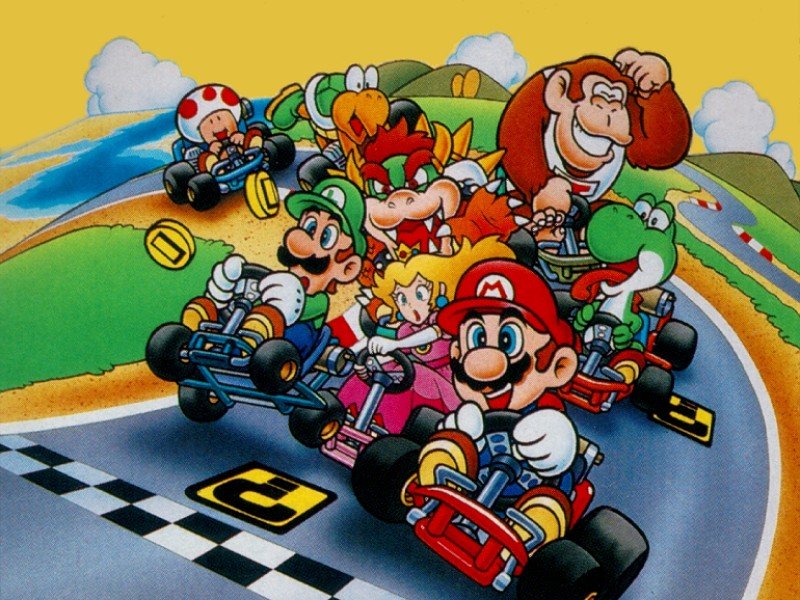What value does a well-known actor bring to a film?
When you think about it, the whole practice of acting on film is sort of surreal. Famous actors are people we're familiar with as individuals off the screen, but when we see them in a new film role, we immediately accept their "being" this other, fictional person. But our knowledge of their off-screen personalities from interviews, and of their prior work on film, gives us expectations of what they'll bring to their new role. The person onscreen when you watch a film is both the actor you know as an individual, and the character unique to the film.


The interesting thing about games is that we play through all these stories revolving around human characters, but the element of the recurring actor is absent. The main character you see onscreen when you play a game like, for instance, Bully, isn't a role being played by a real person (beside the voice actor of course); the person you control onscreen is only Jimmy Hopkins, a unique entity to that gameworld. Even if a specific character carries over throughout a series, they exist only as that character (Sam Fisher will only ever be Sam Fisher.) When you want to go see the new Pacino movie, your expectations are formed to some degree based on what you know of Pacino the man, regardless of the character he's playing or the story the movie will be telling. In games, Mario may fill many different "roles" (kart driver, tennis player, doctor,) but he is only ever Mario, both the actor and the role, as it were. He only ever depicts himself.


So, for games to draw from this particular strength of film, I think there may be some value to the idea of a persistent stable of "digital actors," each of which maintains a consistent set of innate physical and personality traits unto themselves as individual beings, and who may then be "cast" in a variety of otherwise unrelated games, filling a unique "role" in each. When a new digital actor "debuts," you could get a feel for them in their initial role--their attitude, their features, their style, the archetype they tend to embody; in their next game, they would carry over these innate characteristics, but depict an entirely different in-game character, in a completely different gameworld.
When I think of a game that I'd love to draw digital actors from, Metal Gear Solid 3 is the first that comes to mind. Specifically, The Boss was a wonderfully realized character; she was so well defined that I could see her as an actual person, existing outside a game, which is the quality a digital actor would need to possess. Over the course of MGS3, you really got to know the characters, and I feel that bringing the essence of The Boss to a new game would be a huge draw to players, and give the creatives on the team a really interesting resource to draw from. We know "who" The Boss is, the essence of that person; if the same "actor" were playing a different role, what would she bring to it? Like going into a film knowing you're going to get Pacino, she would lend elements of "herself" to the new character she played. The same could be said of Eva, Volgin, and Ocelot. A completely different game featuring the same ensemble cast would be a very interesting experiment. Games have gotten to the point that their characters can convey unique, endearing, human personalities; who wouldn't want to see another game starring the digital actor of Frank West but without the zombies, or Leon Kennedy but without.. well, the zombies, or Cate Archer pulled out of the 60's, or Sam Fisher pulled out of the catsuit and goggles--the digital actors allowed to be separated from their "signature roles," and to live in new worlds?
It's been done on some level, and long ago-- over the course of 50 years, Osamu Tezuka's comics and animation featured a revolving cast of familiar characters that assumed new roles in each of his different titles. Tezuka's "Star System" did just what's described above-- each character existed unto himself, and could appear in any of Tezuka's titles as an entirely new character, but with a similar personality from role to role. Ochanomizu, Shunsaku Ban, Saruta, Tenma, Acetelyne Lamp, and others became familiar cultural images, apart from any single role they played. They were Tezuka's archetypes, and served as anchors for the readers of new properties in which they appeared.



Many elements of game development seem to suffer from either reinventing the wheel with every new title, or pumping out identical sequels that rely on the exact same elements from year to year. The star power of a beloved "digital actor" might be a useful compromise, a boon to an otherwise original IP from all angles-- the designer's, player's, and marketers' perspectives. Why throw away a perfectly good character you've worked hard to create?
6.03.2007
Actors
Labels:
game theory
Subscribe to:
Post Comments (Atom)

2 comments:
No... NO I SWEAR TO GOD I WAS JUST WRITING SOMETHING EXACTLY LIKE THIS. MY FIRST ESSAY.
... It was called "Razputin ... Calavera ... in Shadow in a Castle, a new game from Alan Smithee, the non-existent game designer." Nooooo. :(
.. Is it OK with you if I still go with the essay?
Don't let me stop you. But cite your references.
Post a Comment